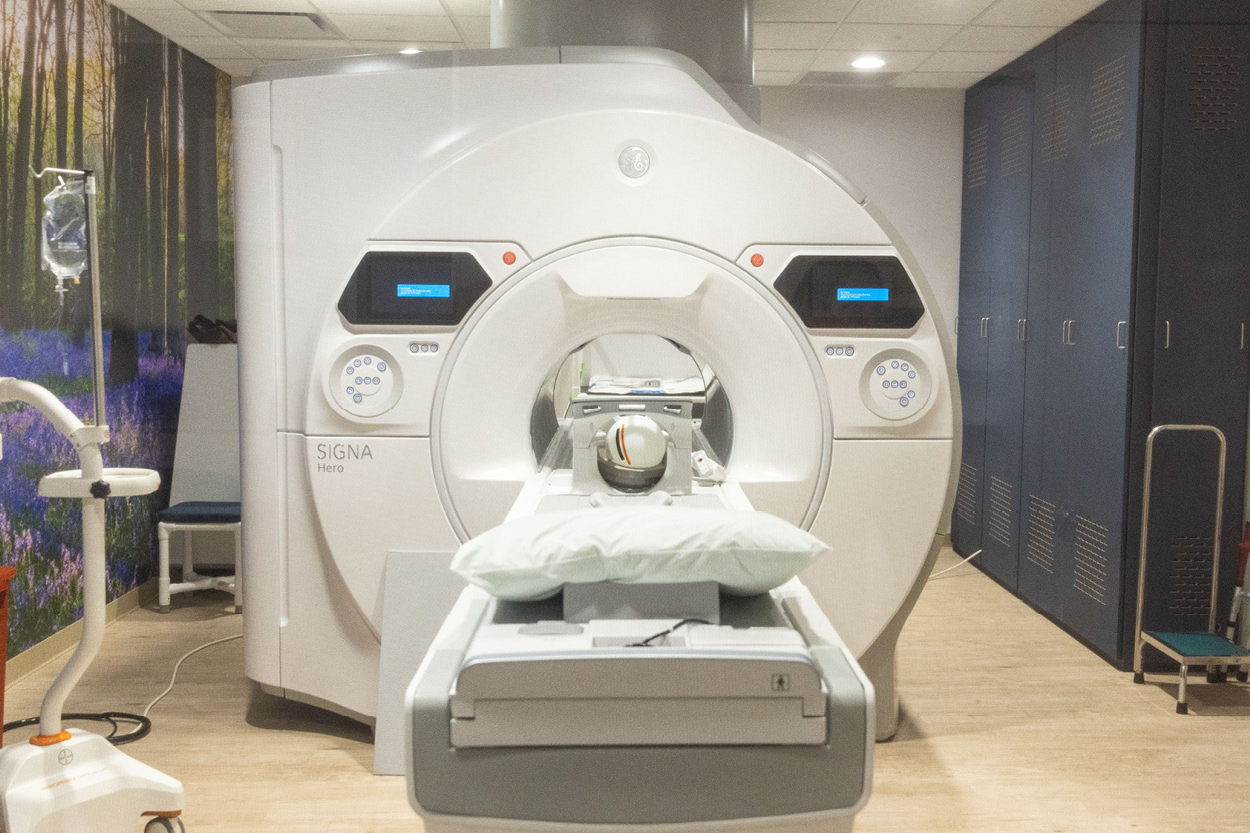Diagnosing Pancreatic Cancer
Could early detection save lives? Pancreatic cancer is hard to catch early, which makes quality imaging so important. MRI scans help doctors clearly visualize the pancreas and identify concerns that require treatment.
Pancreatic cancer affects thousands of people every year. The 3T-MRI is a powerful scanner that produces highly detailed images of your pancreas. It operates more efficiently than older machines, providing doctors with clearer images to work with. The scanner uses special lightweight coils that rest comfortably on your body during the scan. The headrest tilts for added comfort, which is particularly helpful for those with back issues or difficulty lying flat.
What Happens During Your MRI
An MRI uses magnets and radio waves to create images of the inside of your body. There are no needles, no radiation, and no pain associated with the test. At EEI, our team will be there as you lie down on a cushioned table that slides into the scanner. The scanner is open on both ends, so you're never completely enclosed. One of our technologists will run the machine from the next room, but can see and talk to you the whole time through a speaker.
Most scans typically take between 10 and 30 minutes. The machine is known to make loud tapping and knocking sounds while it takes pictures. If this noise sounds overwhelming, you can wear headphones to listen to music. We may ask you to hold your breath for a few seconds to get a clear picture. If you are nervous, you may ask to bring a loved one into the room, provided they follow all protocols.
How to Prepare for Your Scans
Getting ready for your scan is pretty straightforward. The main thing to keep in mind is avoiding metal – that means choosing comfortable clothes without metal zippers or snaps, and leaving jewelry at home. If you wear a bra with underwire, you'll want to swap it for something without metal, as these can interfere with the imaging. And if there's any chance you might be pregnant, let your doctor know in advance.
Some scans require a contrast dye administered through an IV to improve image clarity. If you need a contrast, we'll perform a quick blood test first to ensure it's safe for your kidneys. This test should take only about 5 minutes of your time.
Inform your doctor and technologist if you have any metal implants, such as a pacemaker, metal clips, or joint replacements. Some implants cannot be placed near the MRI machine because the strong magnets could cause problems.
What We Offer
At East End Health and Imaging Center, our experienced technologists will take care of you during your scan. Want to learn more about your results? Ask about our online portal. We can give you a CD of your images to take home, or we can send them directly to your doctor.
If your doctor recommends an MRI to examine your pancreas, we're here to help. Reach out to East End Health and Imaging Center to schedule your appointment or ask any questions about the process.

